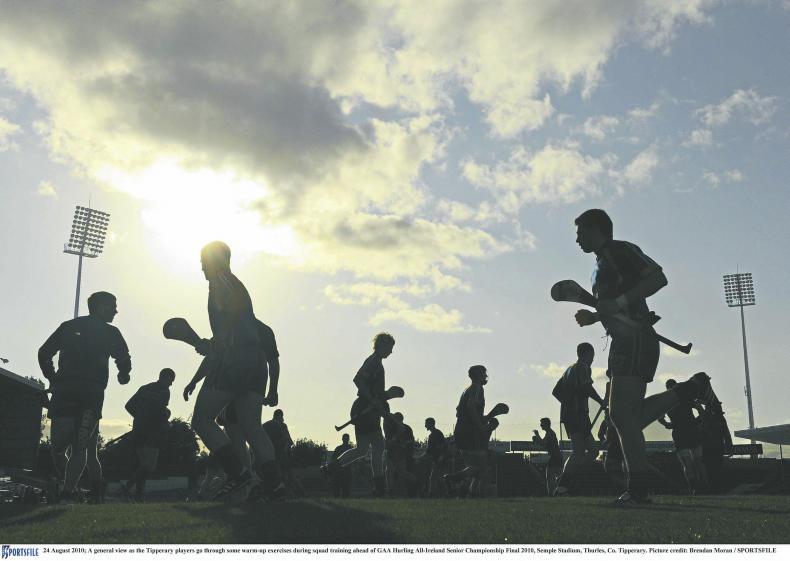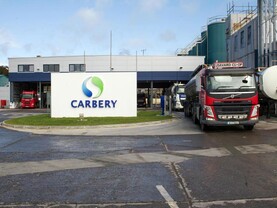Approaching his mid-30s, Colm Crowley – a Cork County Board games development administrator (GDA) – didn’t want to keep playing hurling competitively but he was keen to stay involved. Reckoning that there were others like him, he put out a call on social media last month to establish interest levels in small-sided “social GAA” for the over-30s – and the response was resounding.
A four-week pilot period on the 4G all-weather pitch at Páirc Uí Chaoimh comes to an end this week, with the hope that this is the beginning of something that can expand nationally.
“It has been bandied about the last couple of years,” Colm says, “people have been talking about some sort of a recreational game.
“I do enjoy still playing but I don’t enjoy the cut-and-thrust of highly competitive matches. It was at the end of October that I just threw it out on the GDA Twitter page to see if there was an interest in doing it. Within five days, 200 people had expressed an interest, which was overwhelming.
“I got on the case then and I was speaking to Diarmuid O’Donovan in the county board with regard to using Páirc Uí Chaoimh and arranging insurance and all that kind of thing. He was a great help for it in terms of what needed to be done.
“From that, I spoke to Tracy Bunyan in Croke Park about it, she’s involved with the Super Games Centres for teenagers. We were looking at the same model as that but for adults.
“Colin Regan, the GAA’s community and health manager, had been tasked with having a look into this as part of the GAA’s strategic plan for 2018-21 and it was part of the Cork strategic plan that came out last year, too. This fitted well and they were very supportive. Colin is coming down this week to have a look at it and see how it’s run.”
Each week has seen approximately 60 players out on the field, with about 45 ever-present and the total number of participants up at around 80.
“That it’s in the Páirc is probably the selling point for a good few of them, I’d say,” Colm laughs.
“Getting down there and getting togged out in the dressing rooms is a bonus for a few fellas. More seriously, the concern I would have had was that if we went to Club A to host it, players from Club B mightn’t go or vice-versa. That was the benefit of getting Páirc Uí Chaoimh for the initial stage but I’d imagine that we’ll have to go to clubs after Christmas as Páirc Uí Chaoimh wouldn’t be available due to county teams training.
“The big thing is to make it sustainable going forward, either with the establishment of a working group or getting the county board to appoint people. We’ll review all of that after this period and get some feedback.
“There is a bunch of clubs in Dublin that do have initiatives for over-30s or over-40s social hurling. It’s done on an ad-hoc basis around the country – but it’s not done on a county-wide scale, which is what we’ve tried to do. I know that’s a loose term in Cork, when it’s so big, but we’ve tried to do it from a non-club perspective, keep it as neutral as possible.”
Health message
As well as the games themselves, there has also been a focus on keeping things in working order outside of the sessions.
“While the hurlers would be playing, the footballers would get the health talk inside and vice-versa,” Colm says. “The first night, we had Kevin Mulcahy, who spoke on strength and conditioning and how to be a bit more active in your current lifestyle.
“It wasn’t a case of: ‘Right lads, you need to go to the gym four nights a week.’ It was the little things you could do at home or do in the office.
“The second night, we didn’t have anyone, we had all of the players on the pitch: four matches, two hurling and two football, seven- or eight-a-side, with the pitch going from the end line to the 65, which is probably about the right distance.
“We’re making do with what we can, but we’re conscious of including the health aspect too. We had a mindfulness person last week and one of the officers from Croke Park is going to do a bit on diet and nutrition this week. Again, it’s simple things on how you can put that into your lifestyle without having to give up carbs or whatever. It’s about subtle changes. We’re hoping, from the social aspect of it, that they’ll get a mental benefit and the playing aspect brings a benefit on the physical side.”
It bodes well in terms of the viability after the pilot project ends.
“It’ll be interesting to see the feedback, it was very positive after the first two weeks,” Colm says.
“In my own head, I’d love to think that, say, Carrigtwohill might host hurling on a Monday night, St Finbarr’s might host football on a Tuesday, Na Pairsaigh might host hurling on a Wednesday, somewhere like Clonakilty might host football on a Thursday night, Mallow might host a night as well. It would be ideal to have it throughout the county.
“There does seem to be a demand for it. We have a wide demographic, from age 32 up to the mid-50s. It ticks the box for a lot of people.”
And making it a national initiative?
“If it was just left to the GDAs in a county to run it, you might get opposition,” Colm says, “but you’d be surprised – there are good people in clubs. St Finbarr’s healthy club programme have been on to me already about how they can do it, Blarney have an over-35s WhatsApp group set up since we’ve started and they’re going to start doing a bit themselves on their astroturf. I’d imagine it might follow the format of the ladies’ football scheme Gaelic For Mothers And Others, where they have one or two big days out in the year. It might be something like that comes out of it.”
Email socialgaacork@gmail.com or contact @socialGAACork Twitter for more information.






 This is a subscriber-only article
This is a subscriber-only article









SHARING OPTIONS: